Hello
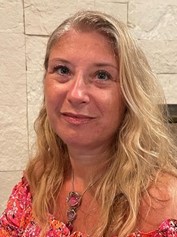
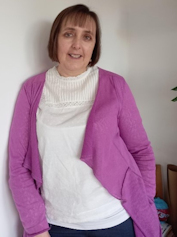 So much has changed about how we work over the last two years bringing both challenges and opportunities. One of the better aspects has been the ability to connect more readily with colleagues across the partnership and region.
So much has changed about how we work over the last two years bringing both challenges and opportunities. One of the better aspects has been the ability to connect more readily with colleagues across the partnership and region.
We first started working together because of the pandemic and around the development of the long COVID clinics. In my role as Yorkshire and Humber Clinical Network lead for Respiratory (Louise), I was tasked with bringing together the bids and specifications of the assessment clinics and I was involved from a place perspective being the chair of the Leeds place rehabilitation steering group (Maureen). We both have a shared passion to ensure people have access to rehabilitation that enables them to live their best life regardless of their health condition.
Long COVID clinics across our Partnership have developed to provide multi-disciplinary assessment of symptoms and people’s needs and deliver the treatment and care required in a truly patient centred way. The clinics offer access to personalised rehabilitation along a single patient pathway from a range of specialities, professions, and providers as well as digital solutions and support from the private and voluntary sectors. It has been truly inspirational to see these clinics and pathways emerge and how sectors have worked in partnership to design services around the emerging needs of the patients. We have innovated and delivered something different and continue to lead the way in the development of the long COVID clinics with services in our Partnership winning national awards and our clinicians being appointed to international roles.
We have been reflecting on how much has been achieved by each of the five local places (Bradford District and Craven; Calderdale, Kirklees, Leeds, and Wakefield) to set up services in such a short space of time that weren’t even thought about two years ago. What really struck us though was how all services have bought the specialities to the patient pathway as opposed to the patient needing to access several specialist pathways according to their symptoms. This has challenged us to start rethinking rehabilitation and what services might look like if we applied the same principles and needs based approach to people on other clinical pathways.
We have several clinical networks for our Partnership funded by NHS England /Improvement such as the stroke network, cardiac network, and the respiratory network. These support the delivery and development of rehabilitation as part of a clinically defined pathway. This works well for us as clinicians and services because it enables us to hone our expertise in a particular area and drive research to push the boundaries of our knowledge to work with patients.
The discreet rehabilitation services, delivered as part of the wider clinical pathways, are often underfunded, and become the Cinderella service as the level of professional specialism increases. Reflecting on our long-COVID rehabilitation experiences, we wondered if we pooled some money and resource from these networks could we be so much more ambitious in our rehabilitation aspiration for patients?
We are reflecting on what we need to deliver as a combined specialist/general rehabilitation offer and what needs to stay on the clinically specialist pathways. To take this thought further we will be supporting some work with the cardiac and pulmonary rehabilitation services building on the learning and experiences in developing long-COVID clinics and seeking patient, staff, and carers insights.
Stroke rehabilitation is being developed nationally through the stroke networks and delivery groups locally with the aspiration being adherence to the Integrated Stroke Specification. We do however wonder what part of that rehabilitation offer will be similar to what is offered on the cardiac and pulmonary rehab pathways and if we need to develop this in a silo on its own or combine it. We think that by bringing rehab pathways for different conditions together and looking at similarities and differences, we can create rehabilitation that is easier for people to access, prevents duplication across services and delivers more efficiently for the NHS, and importantly helps people. Rehabilitation also features in other health and care agendas that are challenging our services now, for example, aging well, discharge and flow, virtual wards, enhanced care in care homes, additional roles in primary care, and elective recovery. The patients accessing these services will include some of the same people accessing the specialist services above. We learnt from developing our long COVID services that it is possible to bring the specialist services together on a single patient pathway so how do we do it around these agendas? How do we develop that specialist/general rehabilitation offer?
Data from the long COVID clinics is interesting. Most clinics are seeing more women than men, more people from more affluent communities, than the lower ones and more people from white backgrounds rather than people from minority ethnic communities. This is at odds with what we would expect to see based on the demographics most affected by COVID and therefore the expectation they will have higher rates of long COVID.
Through the West Yorkshire Long Covid Group we are looking at this and all clinics are taking steps to address this. It did get us thinking though, if this disparity can happen in these clinics, what is happening in the long-term health condition clinics and pathways. Do similar disparities exist and if so, why? We are looking to test this hypothesis further with the Yorkshire & Humber Academic Health and Science Network. This will involve using data to identify what communities we need to engage with to understand what and how rehabilitation should be offered to meet specific community needs and therefore increase uptake and retention on rehabilitation pathways from those communities.
Learning from developing and implementing the long COVID clinics has identified how we need to rethink how rehabilitation is offered. It needs to be:
- Personalised embracing the philosophies and aims of the partnerships personalised care programme
- Address health inequality in line with the aspirations of the partnership’s health equity academy
- Responsive and offered in a timely way so that people do not have to wait for services and experience any further deterioration in health and well being
- Accessible both physically as well as culturally
- Staffed with the right skill in the right place at the right time.
Of course, starting with a clean slate and having specific funding and service criteria made it easier to deliver the above ambitions for the long COVID clinics. We have seen what is possible and now we need to be braver in our thinking and intentions for rehabilitation across all areas and services we have talked about. We need to think about how we can use funding that is allocated in defined pots to rethink rehabilitation as a personalised offer based on the patient need delivered in a way that is meaningful and accessible to them and not restrained by a clinical label.
We’d love to build on our thoughts and create a community of practice for anyone interested in rehabilitation and supporting our work so if you are interested please get in touch Maureen.
Thank you for reading, and have a good weekend all.
Maureen and Louise


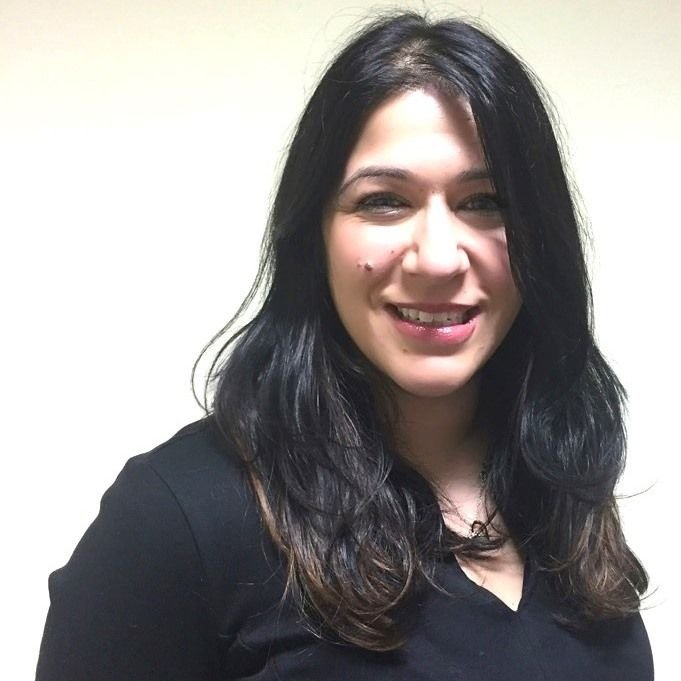 Hello, my name is Fatima.
Hello, my name is Fatima.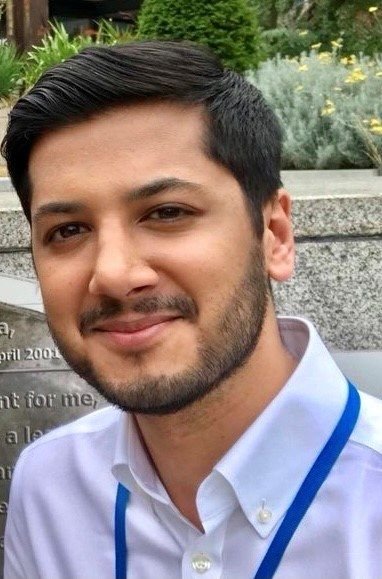 Hello my name is Wasim.
Hello my name is Wasim.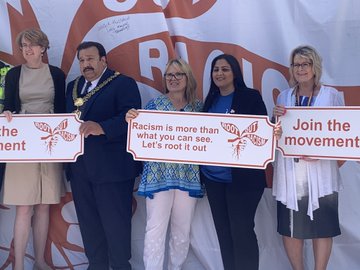 On 23 August 2021, we enjoyed a memorable day alongside colleagues from across our partnership and members of our communities at our place-based launch of the Root Out Racism movement that has been developed by the West Yorkshire Health and Care Partnership. Our very high profile and highly visible launch complete with music, dance and sounds from our diverse communities really did demonstrate our commitment to doing all we can to level the playing field for all.
On 23 August 2021, we enjoyed a memorable day alongside colleagues from across our partnership and members of our communities at our place-based launch of the Root Out Racism movement that has been developed by the West Yorkshire Health and Care Partnership. Our very high profile and highly visible launch complete with music, dance and sounds from our diverse communities really did demonstrate our commitment to doing all we can to level the playing field for all.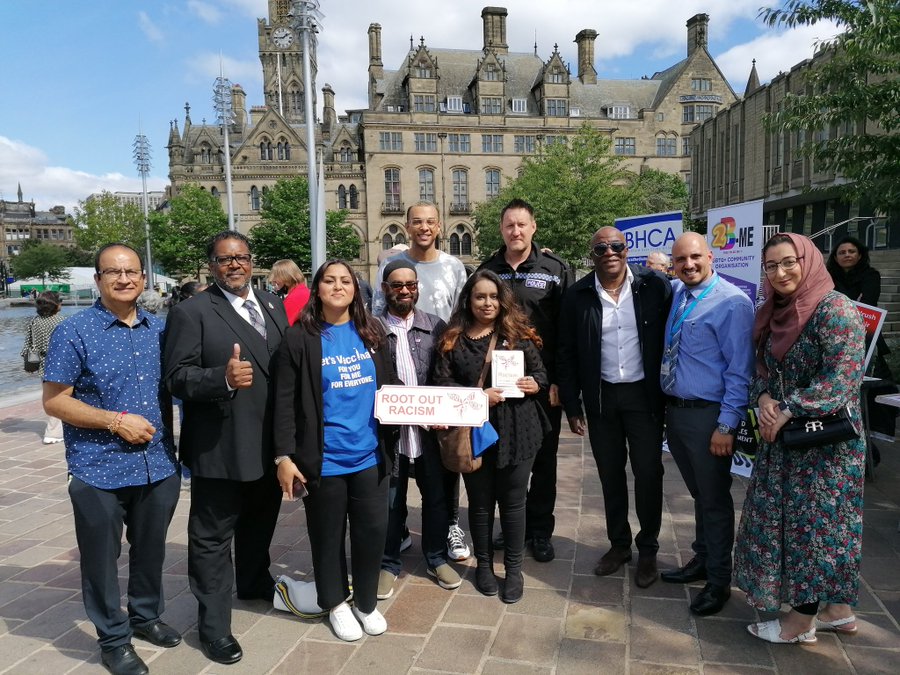 We have all taken steps to actively raise awareness of key awareness days and events including Black History Month and we will be using Race Equality Week to remind ourselves of our commitments to being actively anti-racist in what we do. Our unquestionable and relentless focus is on diversifying our leadership across our organisations as well as ensuring we give every voice – internally and externally – a chance to be seen, to be heard and to know that we will listen. This is our shared pledge and commitment, and this is what we want you to help us achieve. We have demonstrated this by creating a new system wide senior level equality and inclusion lead role which has been designed to support our wider health and care partnership and our Act as One vision and will be a key part of our decision-making processes for our partnership.
We have all taken steps to actively raise awareness of key awareness days and events including Black History Month and we will be using Race Equality Week to remind ourselves of our commitments to being actively anti-racist in what we do. Our unquestionable and relentless focus is on diversifying our leadership across our organisations as well as ensuring we give every voice – internally and externally – a chance to be seen, to be heard and to know that we will listen. This is our shared pledge and commitment, and this is what we want you to help us achieve. We have demonstrated this by creating a new system wide senior level equality and inclusion lead role which has been designed to support our wider health and care partnership and our Act as One vision and will be a key part of our decision-making processes for our partnership.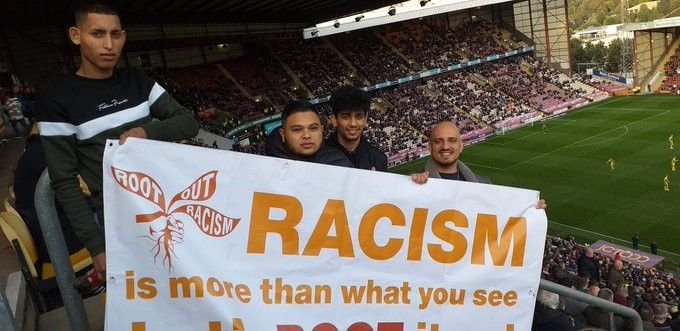 Our response to Covid has reminded us of the challenges that remain in developing trust among our communities, and this has been demonstrated by the varying levels of people taking up the Covid vaccine. This has provided us with a reminder, if one was needed, as to why it is vitally important that we build trusting relationships with all our communities and our own colleagues. By rooting out racism we will go a long way towards achieving that. It is why we are embarking on a community centred vaccination programme that responds to what people are telling us. We will be learning from this experience to consider how all our services can address deeper inequality issues.
Our response to Covid has reminded us of the challenges that remain in developing trust among our communities, and this has been demonstrated by the varying levels of people taking up the Covid vaccine. This has provided us with a reminder, if one was needed, as to why it is vitally important that we build trusting relationships with all our communities and our own colleagues. By rooting out racism we will go a long way towards achieving that. It is why we are embarking on a community centred vaccination programme that responds to what people are telling us. We will be learning from this experience to consider how all our services can address deeper inequality issues.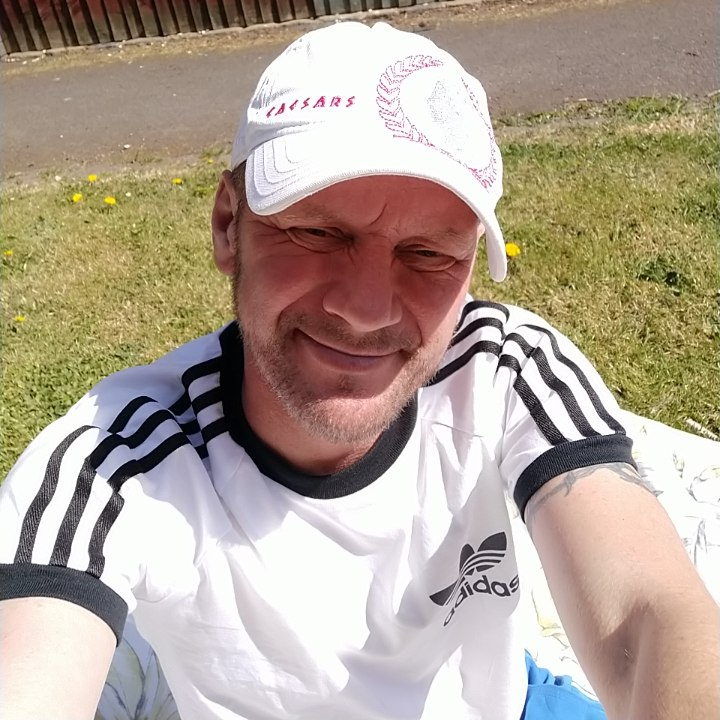 A West Yorkshire man, who is one of the longest surviving transplant patients in the country, has become one of the first to benefit from a new NHS service. Paul Woodward, 52, has cystic fibrosis, diabetes and had a double lung transplant nearly 30 years ago, making him one of the longest surviving transplant patients in the country. Having caught COVID for the second time at the end of December, and being at exceptionally high risk from complications, Paul was contacted by the NHS and offered a new antibody infusion, with the aim of preventing any further complications.
A West Yorkshire man, who is one of the longest surviving transplant patients in the country, has become one of the first to benefit from a new NHS service. Paul Woodward, 52, has cystic fibrosis, diabetes and had a double lung transplant nearly 30 years ago, making him one of the longest surviving transplant patients in the country. Having caught COVID for the second time at the end of December, and being at exceptionally high risk from complications, Paul was contacted by the NHS and offered a new antibody infusion, with the aim of preventing any further complications.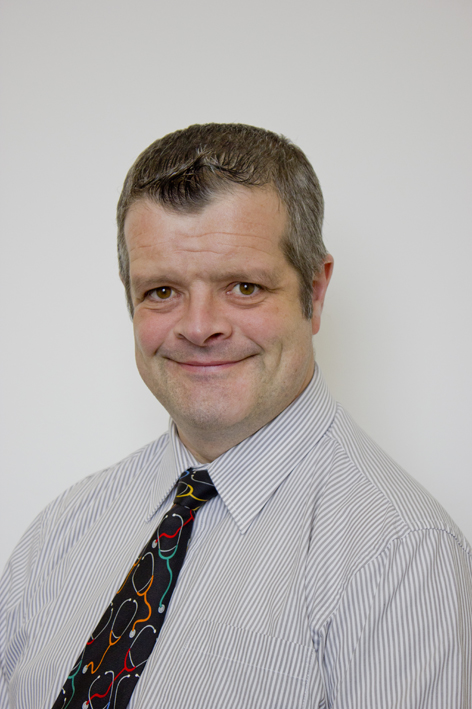 Dr Steve Ollerton, Clinical Lead for West Yorkshire Health and Care Partnership Primary and Community Care Programme said:
Dr Steve Ollerton, Clinical Lead for West Yorkshire Health and Care Partnership Primary and Community Care Programme said: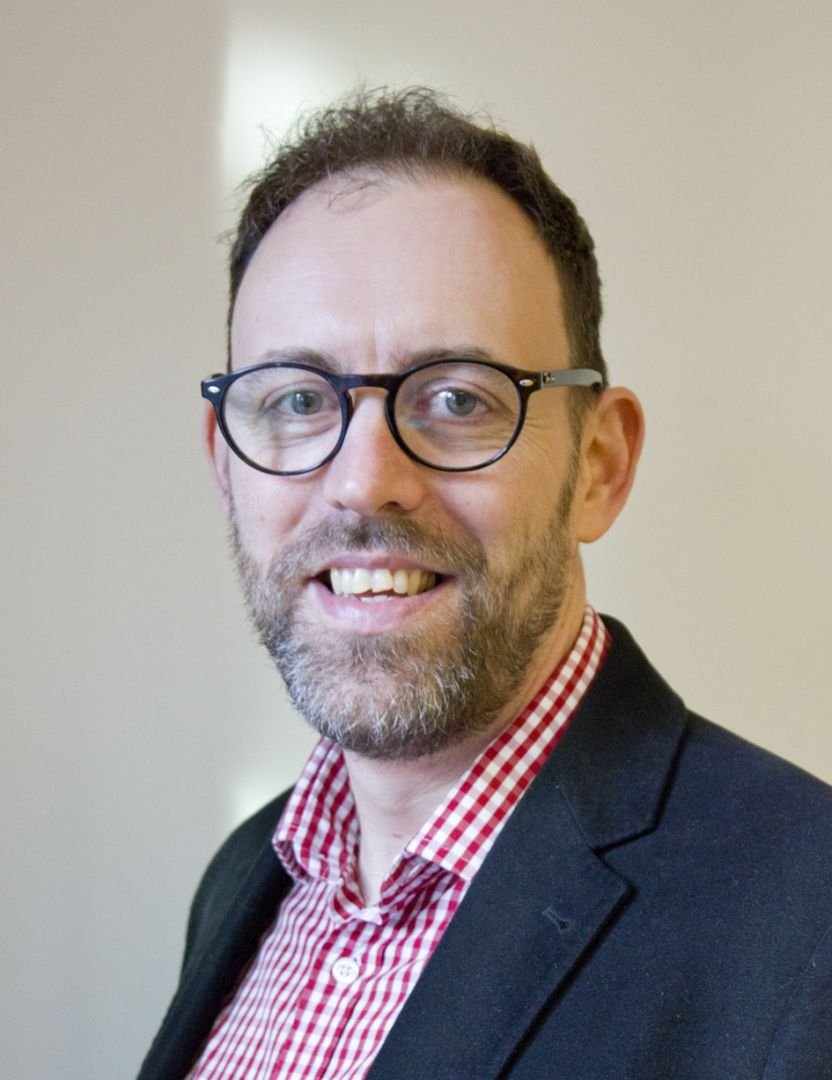
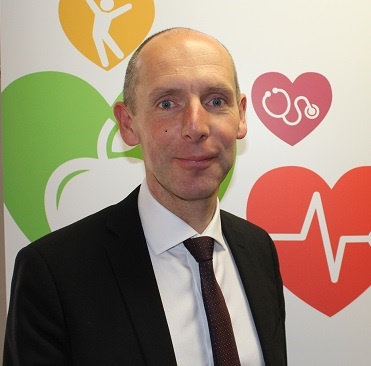 Following an open and comprehensive recruitment process involving West Yorkshire partners and stakeholders, we are delighted to announce that Jonathan Webb has been appointed as the designate Director of Finance and Dr James Thomas has been appointed as Medical Director designate for the NHS West Yorkshire Integrated Care Board (ICB).
Following an open and comprehensive recruitment process involving West Yorkshire partners and stakeholders, we are delighted to announce that Jonathan Webb has been appointed as the designate Director of Finance and Dr James Thomas has been appointed as Medical Director designate for the NHS West Yorkshire Integrated Care Board (ICB).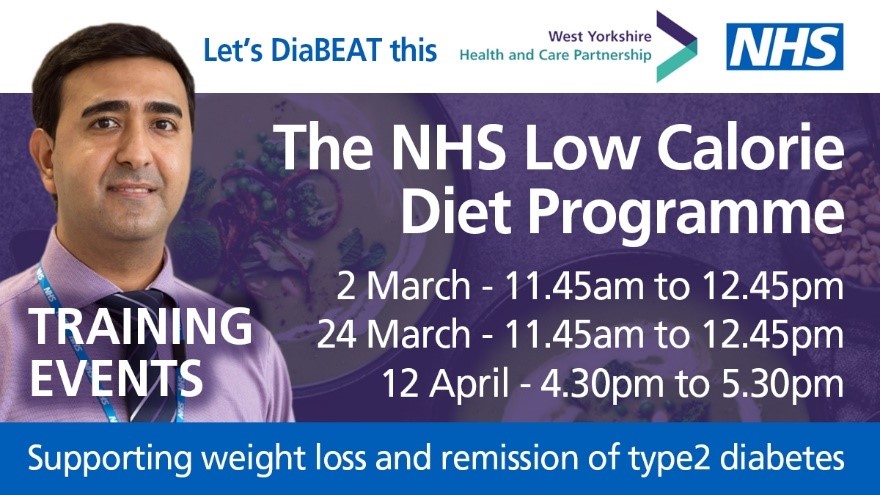
 Figures have revealed that the top five locations in Yorkshire and the Humber with the highest success rates for quitting smoking are all areas supported by South West Yorkshire Partnership NHS Foundation Trust’s Yorkshire Smokefree service.
Figures have revealed that the top five locations in Yorkshire and the Humber with the highest success rates for quitting smoking are all areas supported by South West Yorkshire Partnership NHS Foundation Trust’s Yorkshire Smokefree service.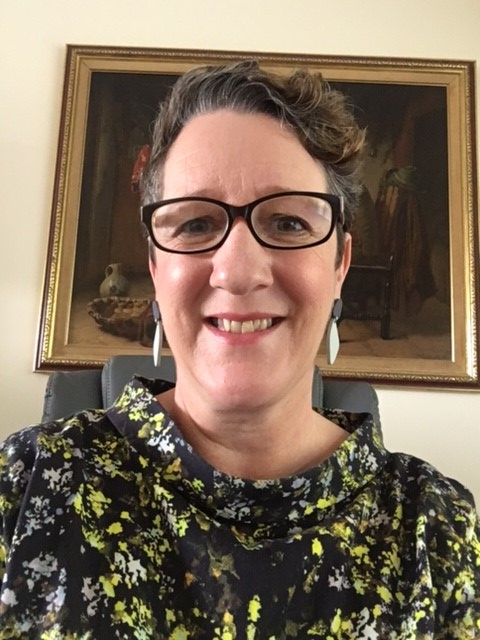 Following a robust national selection process Sarah Brewer has been appointed as the new Director of System Integration, leading the Yorkshire and Humber Commissioning Collaborative for Humber Coast and Vale Health and Care Partnership; South Yorkshire and Bassetlaw Integrated Care System; West Yorkshire Health and Care Partnership and Yorkshire Ambulance Service NHS Trust.
Following a robust national selection process Sarah Brewer has been appointed as the new Director of System Integration, leading the Yorkshire and Humber Commissioning Collaborative for Humber Coast and Vale Health and Care Partnership; South Yorkshire and Bassetlaw Integrated Care System; West Yorkshire Health and Care Partnership and Yorkshire Ambulance Service NHS Trust.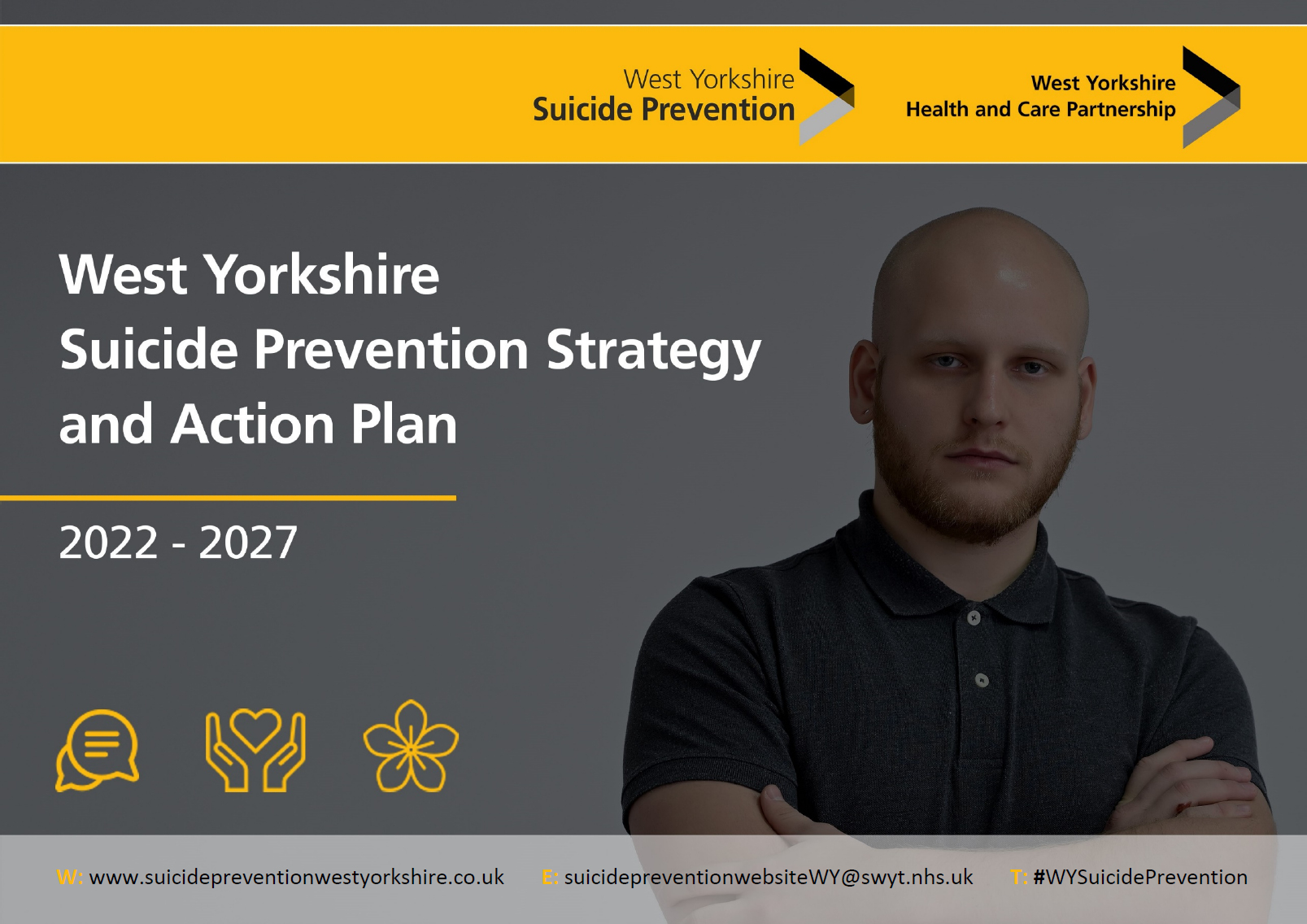 The West Yorkshire Suicide Prevention Strategy 2022-27 is now published. The Strategy aims to make suicide prevention everyone’s business and is based on a long-term vision for zero suicides in West Yorkshire. Key takeaways from the strategy are that:
The West Yorkshire Suicide Prevention Strategy 2022-27 is now published. The Strategy aims to make suicide prevention everyone’s business and is based on a long-term vision for zero suicides in West Yorkshire. Key takeaways from the strategy are that: